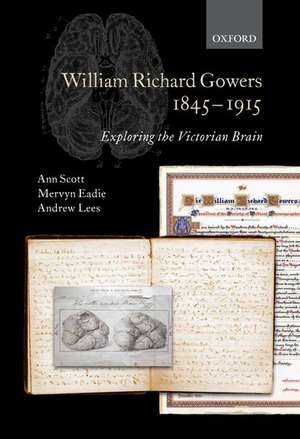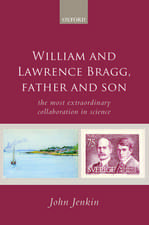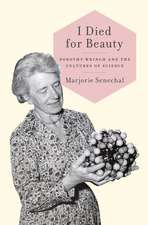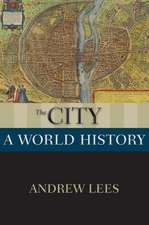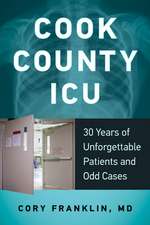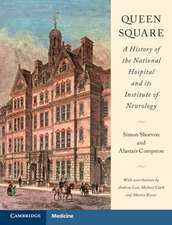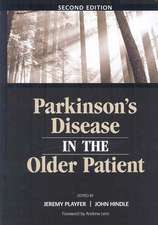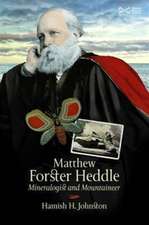William Richard Gowers 1845-1915: Exploring the Victorian Brain
Autor Ann Scott, Mervyn Eadie, Andrew Leesen Limba Engleză Hardback – 23 aug 2012
Preț: 733.53 lei
Preț vechi: 1051.46 lei
-30% Nou
Puncte Express: 1100
Preț estimativ în valută:
140.39€ • 146.00$ • 117.48£
140.39€ • 146.00$ • 117.48£
Carte tipărită la comandă
Livrare economică 04-10 martie
Preluare comenzi: 021 569.72.76
Specificații
ISBN-13: 9780199692316
ISBN-10: 0199692319
Pagini: 330
Ilustrații: numerous original line illustrations and photographs
Dimensiuni: 176 x 236 x 22 mm
Greutate: 0.72 kg
Editura: Oxford University Press
Colecția OUP Oxford
Locul publicării:Oxford, United Kingdom
ISBN-10: 0199692319
Pagini: 330
Ilustrații: numerous original line illustrations and photographs
Dimensiuni: 176 x 236 x 22 mm
Greutate: 0.72 kg
Editura: Oxford University Press
Colecția OUP Oxford
Locul publicării:Oxford, United Kingdom
Recenzii
This splendid new biography is full of fresh insights into Sir William Gowers and his time. The authors, who include Anne Scott, one of Gowers' descendants, have been able to draw on hitherto unknown family sources, Gowers' own diary from his early years, and illustrations and recollections culled from many published and unpublished sources. This fresh information provides warmth and understanding, especially of his early life and struggles that brings him close to us, even living as we do in so different a world scene. This is a book to while away any long journey and to enlighten our understanding of that key period in British neurology, the 40 years from 1870 to 1910.
It is possible to describe Ann Scott, Mervyn Eadie, and Andrew Lees' biography as a simply astonishing act of labour and a major contribution to the history of late-Victorian and Edwardian medicine. This biography possesses so much new material on the late nineteenth-century science and medicine of the brain and mind, it cannot be missed by any serious student of the history of neurology or psychiatry. William Richard Gowers 1845-1915 gives brilliant shape to one of Britain's most prominent medical man...an invaluable contribution to the history of neurology.
One of the great founding figures of neurology, W. R. Gowers was a matchless observer and describer of neurological disorders. His 1886-88 Manual (all 800,000 words of it, illustrated by hundreds of his own drawings) is still enchanting and instructive 130 years later. Now we have a grand and definitive biography of the man, which makes equally fascinating reading. Using recently-discovered primary sources, including Gowerss own shorthand diaries, Ann Scott (Gowerss great-granddaughter), Mervyn Eadie and Andrew Lees (two of our most distinguished neurologists themselves), have explored the life and times of this pioneer and his legacy to all who are interested in the human brain. - Oliver Sacks
It is possible to describe Ann Scott, Mervyn Eadie, and Andrew Lees' biography as a simply astonishing act of labour and a major contribution to the history of late-Victorian and Edwardian medicine. This biography possesses so much new material on the late nineteenth-century science and medicine of the brain and mind, it cannot be missed by any serious student of the history of neurology or psychiatry. William Richard Gowers 1845-1915 gives brilliant shape to one of Britain's most prominent medical man...an invaluable contribution to the history of neurology.
One of the great founding figures of neurology, W. R. Gowers was a matchless observer and describer of neurological disorders. His 1886-88 Manual (all 800,000 words of it, illustrated by hundreds of his own drawings) is still enchanting and instructive 130 years later. Now we have a grand and definitive biography of the man, which makes equally fascinating reading. Using recently-discovered primary sources, including Gowerss own shorthand diaries, Ann Scott (Gowerss great-granddaughter), Mervyn Eadie and Andrew Lees (two of our most distinguished neurologists themselves), have explored the life and times of this pioneer and his legacy to all who are interested in the human brain. - Oliver Sacks
Notă biografică
Ann Scott is William Richard Gowers' great-granddaughter. She was born in London and grew up in Oxford. In 1963 she married Australian Rhodes Scholar, Roger Scott, and has subsequently lived in Kampala, Sydney, Belfast, Canberra, and for most of the last 35 years in Brisbane. She embarked on tertiary study in 1973 after her two children started school. She was awarded a Bachelor of Education in 1979, and a PhD in Government in 1984. Her doctoral thesis was a study of education policymaking in Queensland. She worked in the Queensland public service for 20-years from 1984-2004, and has published historical papers on Queensland politics and public policy. Since retiring she has taught public policy at the University of Queensland, edited Nova, the journal of the University of Queensland Alumni Friends of Antiquity, and been an interviewer for an oral history project funded by the Queensland Government: 'Queensland Speaks'.Mervyn Eadie is an expert in the field of clinical neurology and neuropharmacology, particularly in relation to the treatment of epilepsy and migraine. He has authored or co-authored more than 17 books, 71 book chapters, and 381 journal articles. He was chair of the Australian Drug Evaluation Committee for eight years and also served on the Commonwealth Pharmaceutical Benefits Advisory Committee. Professor Eadie graduated MBBS from The University of Queensland in 1955, and was awarded his MD in 1962 and his PhD in 1969. He became a member of the Royal Australian College of Physicians in 1959, a fellow in 1968 and a fellow of the Royal College of Physicians of Edinburgh by direct election in 1984. A senior neurologist at the Royal Brisbane Hospital since 1961 and at Royal Children's Hospital until 1973, Professor Eadie has been associated with the University's Medicine Department since the early 1960s. Awarded the Order of Australia in 1992, he now holds the title of Emeritus Profesor at UQ.Born in Merseyside, Andrew Lees qualified in medicine at the Royal London Hospital Medical College in 1970. His postgraduate clinical training in neurology was undertaken at l'Hôpital de la Salpetrière, Paris, University College London Hospital and the National Hospital for Neurology and Neurosurgery. Andrew has achieved international recognition for his work on Parkinson's disease and abnormal movement disorders and was elected President of the International Movement Disorder Society (2004-6). In 2006, he was awarded the prestigious Movement Disorders Research Award by the American Academy of Neurology which recognises an individual for outstanding work in the field of Parkinson's disease or other movement disorders for either a single outstanding contribution or for lifetime achievement. The following year he was elected Fellow of the Academy of Medical Sciences, and in 2010 he was elected an overseas member of the Academia Nacional de Medicina, Brazil.
